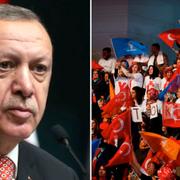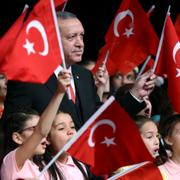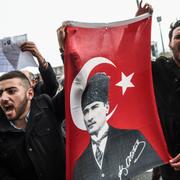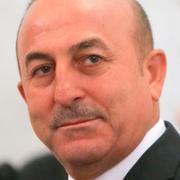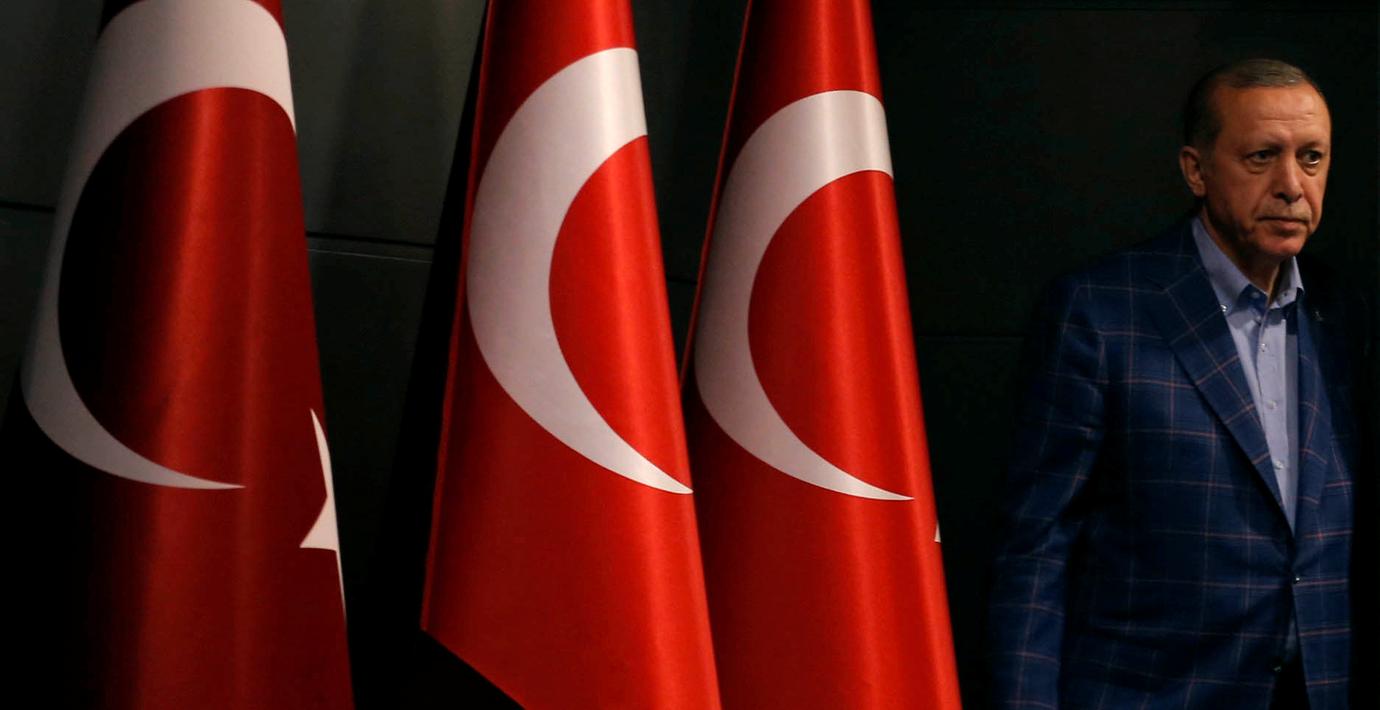
Undantagstillståndet förlängs i Turkiet
Turkiet kommer att förlänga det undantagstillstånd som infördes efter det misslyckade kuppförsöket i somras, rapporterar de turkiska tv-kanalerna CNN Turk och NTV.
Beslutet att förlänga undantagstillståndet togs på ett möte med landets säkerhetsråd i presidentpalatset under måndagseftermiddagen, lokal tid. Mötet hölls dagen efter folkomröstningen där ja-sidan vann med knapp marginal. De som röstade ja röstade för en kraftigt utökad makt för presidenten Recep Tayyip Erdogan.
bakgrund
Det misslyckade kuppförsöket 2016
Wikipedia (en)
On 15 July 2016, a coup d'état was attempted in Turkey against state institutions, including, but not limited to the government and President Recep Tayyip Erdoğan. The attempt was carried out by a faction within the Turkish Armed Forces that organized themselves as the Peace at Home Council. They attempted to seize control of several key places in Ankara, Istanbul, and elsewhere, but failed to do so after forces loyal to the state defeated them. The Council cited an erosion of secularism, elimination of democratic rule, disregard for human rights, and Turkey's loss of credibility in the international arena as reasons for the coup. The government accused the coup leaders of being linked to the Gülen movement, which is designated as a terrorist organization by the Republic of Turkey and led by Fethullah Gülen, a Turkish businessman and cleric who lives in Pennsylvania, United States. Erdoğan accuses Gülen of being behind the coup—a claim that Gülen denies—and accused the United States of harboring him. Events surrounding the coup attempt and the purges in its aftermath reflect a complex power struggle between Islamist elites in Turkey.
During the coup, over 300 people were killed and more than 2,100 were injured. Many government buildings, including the Turkish Parliament and the Presidential Palace, were bombed from the air. Mass arrests followed, with at least 40,000 detained, including at least 10,000 soldiers and, for reasons that remain unclear, 2,745 judges. 15,000 education staff were also suspended and the licenses of 21,000 teachers working at private institutions were revoked as well after the government alleged they were loyal to Gülen. More than 100,000 people have been purged.
Reactions to the event were largely against the coup attempt, both domestically and internationally. The main opposition parties in Turkey condemned the attempt, while several international leaders—such as those from the United States, NATO, the European Union, and other neighboring countries—called for "respect of the democratic institutions in Turkey and its elected officials." International organizations expressed themselves against the coup as well. The United Nations Security Council, however, did not denounce the coup after disagreements over the phrasing of a statement.
President Recep Tayyip Erdoğan accused the head of United States Central Command, chief General Joseph Votel of "siding with coup plotters", after Votel accused the Turkish government of arresting the Pentagon's contacts in Turkey.
In March 2017, Germany's intelligence chief said Germany was unconvinced by Erdoğan's claim that Fethullah Gulen was behind the failed coup. Also in March, the British Parliament's Foreign Affairs Committee said some Gulenists were involved in coup d'état attempt but found no hard evidence that Fethullah Gülen masterminded the failed coup and found no evidence to justify the UK designating the Gülen movement as a "terrorist organization".
Omni är politiskt obundna och oberoende. Vi strävar efter att ge fler perspektiv på nyheterna. Har du frågor eller synpunkter kring vår rapportering? Kontakta redaktionen
